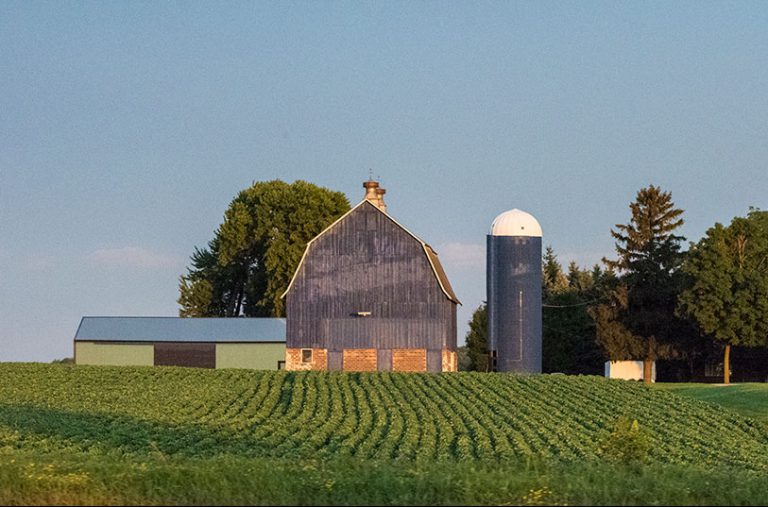It’s been a tough year for essential workers — nurses, first responders, grocery store workers.
But among the hardest hit are agricultural workers, who have been working non-stop to keep food on our tables while struggling to make ends meet themselves.
Organizations like the Farmworker & Landscaper Advocacy Project (FLAP) are trying to help by providing financial and educational resources to low-income immigrant families.
Illinois Newsroom’s Dana Cronin spoke with the organization’s head, Alexandra Sossa, about how the pandemic has taken a toll on this often invisible community.
This interview has been lightly edited for clarity.
Dana Cronin: A lot of the folks you work with are essential workers, many of whom I assume have continued working despite the risks. What have you been hearing from them in this year of COVID-19?
Alexandra Sossa: So there is a huge need in the Latino community. Those who work in the food industry, at the factories processing food, are not able to keep their social distance. And that’s one of the reasons for the increase in the Latino community numbers in terms of COVID infections. They are not able to keep their social distance, they are not getting proper equipment by the company owners. Like they are not getting, for example, face masks, and in general, the protective equipment that they should be getting. These are people who make less than minimum wage sometimes. They need a lot of financial assistance to support their families.
DC: Have there been any specific stories or situations that have really stuck with you this year?
AS: Well, we have several. But one for example, is, I was in the field and I saw a worker on the street doing landscaping work, and he was with his kid and his kid was helping him. He was around eight years old, Alex. So I stopped and I told his dad, I did a short intake, like, how things are going during the pandemic, how many hours he was working. And then I figured out that he was behind on rent for too many months. So I told him we can give you a check for five hundred dollars, that you can go and cash and at least pay part of the rent and buy some food. He was very happy with the help. So I asked Alex, I said, “Alex, what do you want to do with the money? What are you going to do with the money?” And then Alex said, “I want to buy ice cream.” I was like, wow, ice cream. Of course, it has been like seven months without having ice cream. And then he said, “Yes. And I also want my mother not to argue with the landlord because we don’t have money to pay for rent.”
DC: Wow. Yeah. And we know that agricultural workers have been hit hard by this pandemic, whether they work in a meatpacking plant or or they’re in a migrant farmworker camp. Why are they particularly vulnerable?
AS: Well, it’s because they are essential workers. They can’t take a break. They can’t work from home. They can’t have Zoom meetings as we do. And they are in the field producing the food that we put on our table that we have every day. They are the ones who make it possible that we go to the grocery store and we have enough groceries to buy. They are the ones who are actually risking their lives in the fields to make it possible that we have food on our table, that we can cover basic needs.
Dana is a reporter for Illinois Newsroom. Follow her on Twitter: @DanaHCronin

